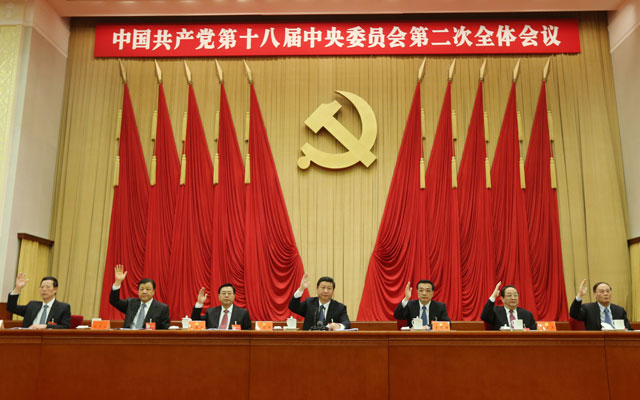Mr. Xi Goes to Moscow: For China’s Leader, It’s Russia First
Ariel Cohen / Benjamin Tigay /
China’s new president, Xi Jinping, will make his first official foreign visit to Russia this month. Xi’s decision to make his first visit abroad to Russia suggests an effort to improve relations and cement their strategic partnership. Washington should pay attention to the growing ties between Moscow and Beijing.
Since the fall of the Soviet Union, Russian and Chinese bilateral relations have vastly improved. Currently, both countries would like to displace U.S. “hegemony,” especially along their borders. Russia repeatedly demanded that the U.S. pull out of the air force base in Bishkek, Kyrgyzstan, while China would like to keep the U.S. naval presence in the Pacific in check.
Russia’s anti-American foreign policy, often with shrill propaganda overtones, seeks to establish a Russian “pole” in the global world order. Chinese Foreign Minister Yang Jiechi said that Xi’s “upcoming visit is expected to add new impetus to the further development of the China-Russia comprehensive strategic partnership of coordination.” The Shanghai Cooperation Organization, which Moscow and Beijing founded, aims to fight “the three evils”: separatism, extremism, and terrorism.
However, Sino–Russian cooperation is not just geopolitical but also ideological. Russia and China want to halt the spread of democracy and keep the U.S. out of their internal affairs, as well as of regimes friendly to them. They believe that any government has a right to crack down on internal dissent or censure the press, including the Internet.
With these principles in mind, they have worked in concert to check U.S. efforts in the Middle East and protect its own interests, such as legitimizing authoritarian regimes. They vetoed and stifled sanctions and internationally supported peace plans for Syria. They enabled Iran to continue its nuclear program by refusing to tighten sanctions.
China, which is the principal supporter of North Korea, condemns even the possibility of military action against Pyongyang—and so does Russia. They increasingly present an alternative to Western-style democracy and are two stalwarts of the broad front against the U.S.
Russia and China are moving to publicize their economic ties. The two countries have already moved to trade with each other using their own currencies—and excluding the dollar. The two countries have promised to increase trade dramatically over the next decade, and they are working on finalizing a deal on the most important sector of their bilateral trade: energy.
Russian Deputy Prime Minister Arkady Dvorkovich is conducting negotiations in China on a natural gas deal, saying that a “significant breakthrough” had been made over the past few months. This gas pipeline will connect Russia’s abundant gas reserves with China’s ever-growing need for energy.
However, China’s rapid economic rise and desire for an enhanced global position could spell trouble for the relationship down the road. Russia’s economy is lagging behind China, and Moscow can become subservient to Beijing economically, turning into the natural resource appendage of China’s continued growth.
As China continues to expand its sphere of influence through military, economic, smart, and soft power, Russia may become its junior partner in international affairs.
For now, mutual geopolitical and economic interests are drawing Russia and China together. Xi’s first visit sends the clear message that China seeks to cement closer ties with its anti-American northern neighbors—and not with the U.S.

